Anna Caldwell: Why the NSW Nationals want to go nuclear
With the target set for zero emissions by 2050, a parliamentary committee is set to challenge environmentally-minded pollies to consider adding atomic power to the mix, writes Anna Caldwell.
Opinion
Don't miss out on the headlines from Opinion. Followed categories will be added to My News.
The nuclear noise is getting louder. This column can reveal that within the next week, a NSW parliament committee is set to hand down a report on nuclear mining and power generation which was on Thursday looking to be “highly positive” and “quite bullish” in its recommendations.
The committee was last night reviewing the final report and while changes may still be made, it is likely to put the NSW government in a position of needing to decide — or at least talk about — where it stands on nuclear.
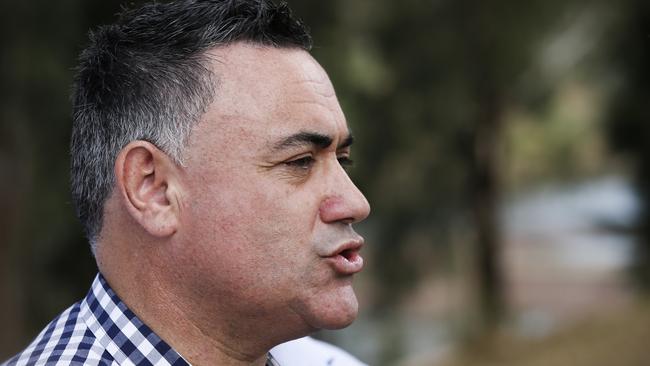
All this comes at a time when federal MPs are increasingly sticking their necks out on an energy source long maligned in Australia.
The committee report relates to legislation already drafted by Mark Latham, which would see bans on uranium mining lifted and pave the way for nuclear power generation.
Latham believes NSW can lead the way and reap the rewards of low emissions energy.
Nuclear power is still banned at a federal level, meaning NSW legislation would merely be signalling intent, but still it would be a massive reform from the bans which were set in 1986 as a direct reaction to the Chernobyl disaster.
The head of the committee is young Liberal upper house politician Taylor Martin, an ambitious centre right MP who pointed out to me on Thursday that he has skin in the game.
“At 29 years old I will likely be the only member of this place who is still in the workforce at 2050 — the target year being talked about for net zero emissions,” he said.
And, after chairing the months-long inquiry into the issue, his personal opinion is clear: “With the advent of the next generation, walk away safe, small modular reactors, and with the benefit of the evidence we have seen and heard through this inquiry, in my view, it is inevitable that we will have to adopt the use of nuclear power at some point in the coming decades.”
Nuclear power also has the fierce backing of Deputy Premier John Barilaro, who told me on Thursday the issue was likely to split the Liberals in half, in what will be the next frontier of NSW’s energy wars.
“The government will have to make a decision here. The Nationals will support the issue — mining uranium is a Nationals policy,” he said.
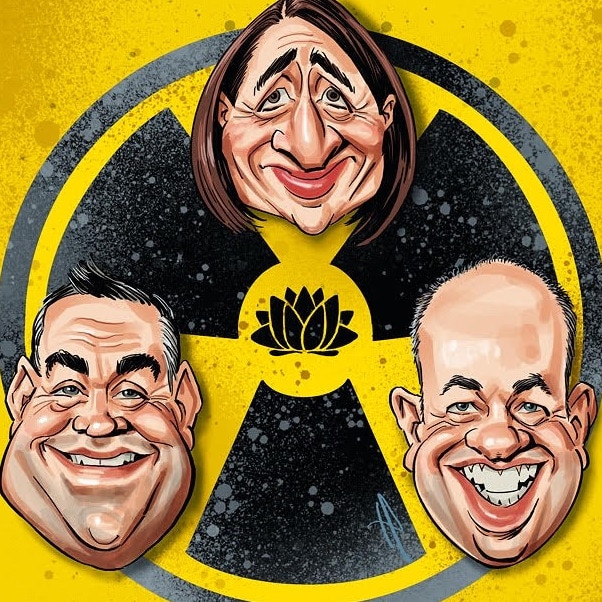
Barilaro predicted there will be Liberal moderates who are in favour of renewables in the lines of wind and solar but who will want to oppose uranium.
“They will be exposed as ideologues, or anti-mining. If they are genuine about decarbonising the economy they will have to back uranium.
“This is going to test those who claim to be focusing and worried about the climate change emergency. If it is an emergency we need urgent and immediate actions.
“Small modular reactors will provide exactly that.”
The government likes to say that it is “technology agnostic” or “technology neutral” when it comes to power generation, but Martin, Barilaro and Latham argue you can’t claim that when one technology is banned.
Government sources have told me that cabinet will likely be very open to lifting the ban on uranium mining but there will be more concern around power generation and that could take some time shifting public sentiment.
One path may be to ask Latham to split his bill in half.
Latham believes NSW can show leadership on the issue, taking a step on generation at a state level and encouraging the Commonwealth to do the same.
“I’m hoping this will go ahead. It’s time for the government to back ‘Bara’ on nuclear,” he told me.
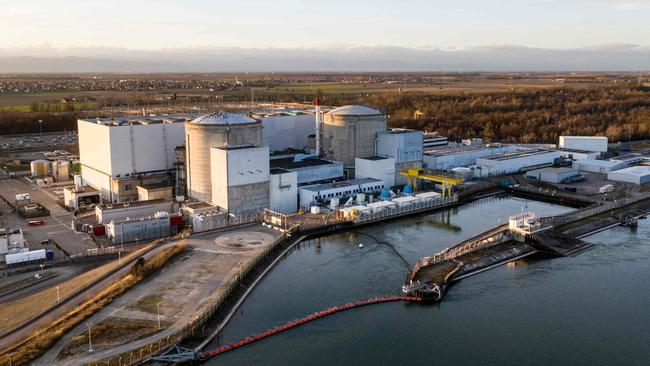
Energy Minister Matt Kean’s personal concern is that the technology for nuclear is not ready and that the fail-safe costs associated with it are high.
He also believes that with a federal ban in place, the road is long and he wants to focus on available methods.
“We know we’ve got power stations that need to be replaced in the short to medium term and the conern is that technology for nuclear is not going be ready in time to do it,” he said.
However, he is open to the best, cheapest, most reliable power which he told me on Thursday “could include nuclear”.
One hurdle in the way of nuclear is community sentiment.
The space nuclear energy occupies in the public consciousness is all Chernobyl, Fukishima or learned off of years of watching The Simpsons.
Barilaro’s vision is different; he is talking about small, modular reactors that don’t even need to be built by the seaside.
Rolls Royce has announced plans to build 10 to 15 of them in the UK by 2029, with each unit small enough to sit on the back of a trailer and producing power of between 50 and 400 megawatts.
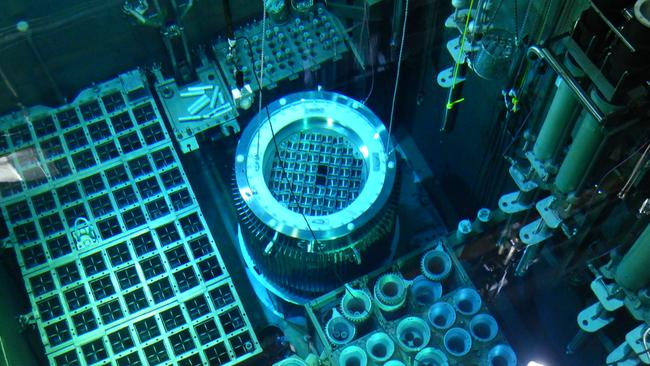
China is also attempting to dominate the market here, but the technology is not yet ready.
Martin has also proposed the idea of an “amended ban”, which would repeal the ban on safe or walk away safe reactors such as SMRs but retain a ban on older-style reactors.
The Minerals Council of Australia told me on Thursday that nuclear-powered France pays 15 per cent less for power than the EU average.
Indeed, there are many quotable statistics on nuclear that should allay the community, but such a major reform will require more than that.
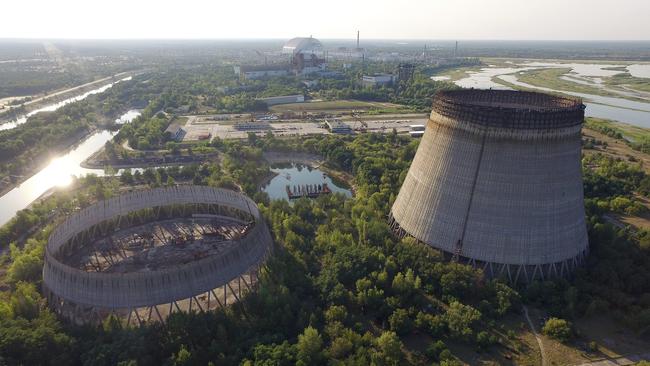
“Australia has a clear choice — we can reconsider the role nuclear energy can play in a low-carbon future and remove the obstacles prohibiting the development of a nuclear industry,” CEO Tania Constable said.
The reality is we need to have sensible, emotion-free and ideology-free discussions about powering this state that tackles all of the options and prioritises jobs and the economy.
The debate over power in NSW is only going to get bigger as we get closer to supply problems, which we know are looming as our behemoths like Liddell come offline.
If Latham’s bill leads to a genuine conversation about nuclear power in NSW, that is a win for everyone.


